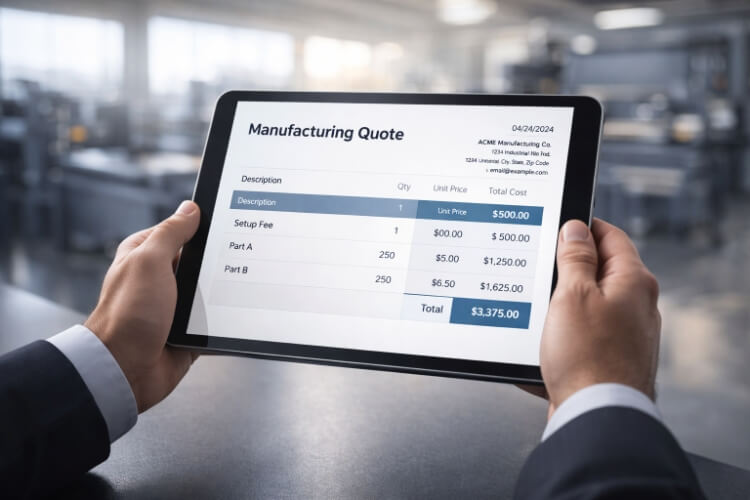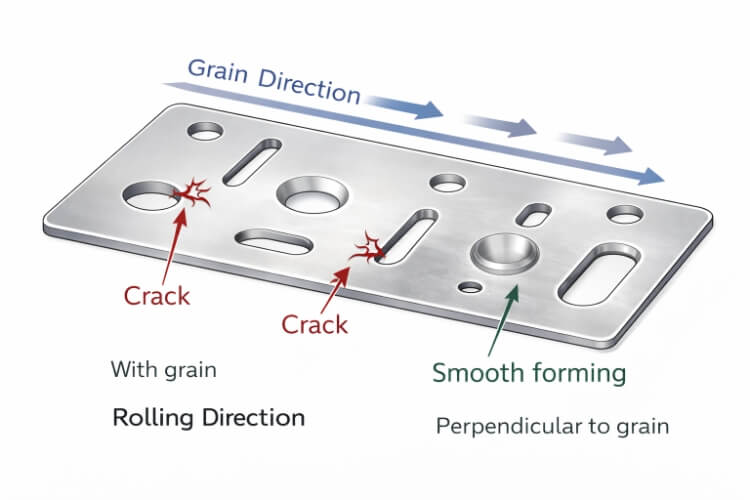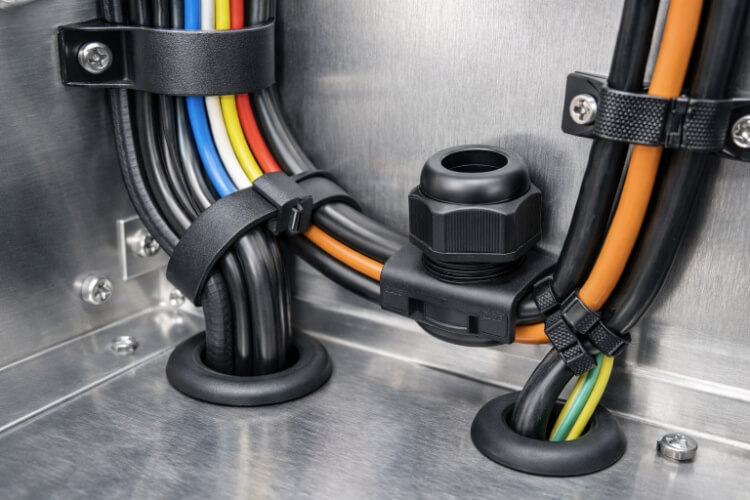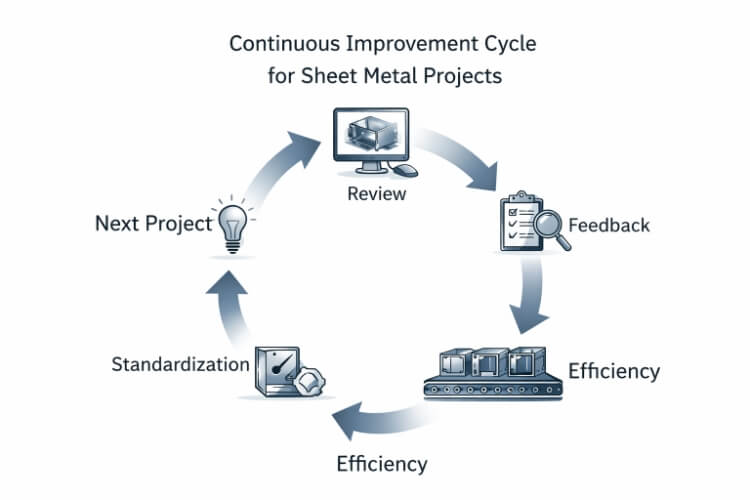Aluminum parts are everywhere. However, many people are unaware of how they’re made. Engineers face delays, startups struggle with part accuracy, and buyers worry about cost. The solution begins with understanding how aluminum fabrication works—and what each process step entails for quality and budget.
Aluminum fabrication encompasses a range of steps and tools. Let’s take a closer look at how it works, what it involves, and why it matters.
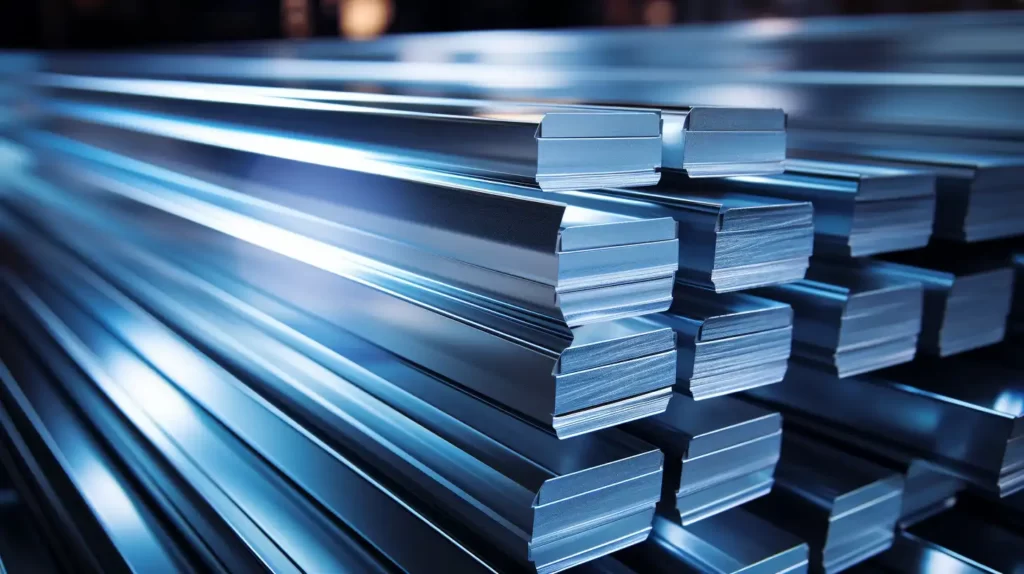
What is Aluminum Fabrication?
Aluminum fabrication is the process of turning raw aluminum into usable parts. This process includes cutting, forming, joining, machining, and applying surface finishes. Each method shapes or joins the metal differently. Depending on the part and the quantity needed, shops use either manual tools or machines.
The process often starts with aluminum sheets, plates, tubes, or bars. Workers or machines cut these to size. Then, they bend them into shape, drill holes, or join pieces with welds or fasteners. Some parts also get anodized or painted to protect the surface.
Well-done fabrication helps parts stay within size limits, look neat, and work properly. It also helps keep costs down and speeds up the production process.
Types of Aluminum Used in Fabrication
Choosing the correct type of aluminum affects how easily it can be cut, bent, welded, and finished. Each type has its own strengths and best-use cases.
Fabricate Aluminum Sheet Metal
Sheet aluminum is thin, flat, and easily shaped. It comes in various thicknesses and is ideal for enclosures, covers, and panels.
Shops use laser cutting, punching, bending, and forming machines to work with sheets. It’s easy to weld and finish. Most sheet metal work utilizes alloys such as 5052 and 6061.
Fabricating Aluminum Tubes
Aluminum tubes are hollow and often used for frames, supports, or fluid systems. They can be round, square, or custom-shaped.
Fabrication includes cutting, notching, bending, and welding. The challenge is keeping the tube’s shape while forming. Fixtures help hold it in place. Tubes often use alloys like 6061 for strength and weldability.
Wrought Aluminum Alloys
Wrought alloys are shaped by force—rolling, drawing, or forging. They’re stronger and have finer grain structure than cast types.
Common wrought grades include 1100, 3003, 5052, and 6061. These are used in precision parts, brackets, and panels that require strength and a clean finish.
Cast Aluminum Alloys
Cast alloys are made by pouring molten aluminum into molds. They’re great for complex parts with curves, holes, or thick walls.
Casting is suitable for large production runs but has lower strength than wrought. Cast parts often need less machining. A356 and 319 are common choices for automotive and machinery parts.
Common Grades and Their Applications
- 1100: Very soft and ductile. Suitable for forming and decorative use.
- 3003: Great for cooking tools and roofing. Easy to shape.
- 5052: Strong and corrosion-resistant. Often used in marine and automotive parts.
- 6061: High strength and weldability. Used in frames, structural parts, and fittings.
- A356 (Cast): Good for intricate parts. Common in pumps, engine covers, and brackets.
| GRADE | ALLOY | FEATURES |
|---|---|---|
| 1000 series | 99% pure aluminium | Electrically conductive |
| 2000 series | Copper | Increased strength |
| 3000 series | Manganese | Food safe |
| 4000 series | Silicon | Lower melting point |
| 5000 series | Magnesium | Higher corrosion resistance |
| 6000 series | Magnesium and silicon | Respond well to heat treatment |
| 7000 series | Zinc | High strength |
Key Aluminum Fabrication Processes
Aluminum can be cut and formed using many methods. The process choice depends on the part’s shape, size, and end-use.
Cutting Methods
Cutting shapes raw aluminum into workable sizes or final parts. Each method suits different part thicknesses, edge quality, and production speed.
Sharing
Shearing cuts aluminum sheets with a straight blade. It’s quick and cost-efficient. Best for simple, straight cuts on thin to medium sheets. No heat is involved, so the edges stay clean with minimal distortion.
Laser Cutting
Laser cutting utilizes a focused light beam to cut aluminum with precision. It works well for thin to thick sheets, creating smooth, accurate edges. It’s ideal for complex shapes or detailed patterns. However, reflective aluminum needs proper setup to avoid beam bounce.
Plasma Cutting
Plasma cutting uses a jet of ionized gas to melt and blow away the metal. It handles thick aluminum better than lasers but leaves rougher edges. It’s often used for heavy-duty parts or when speed takes precedence over precision.
Waterjet Cutting
Waterjet cutting utilizes high-pressure water combined with abrasive particles to cut aluminum. It cuts without heat, so the metal doesn’t warp or discolor. It’s slower but works well for thick, complex parts or heat-sensitive applications.
Forming Techniques
Forming shapes aluminum without removing material. It changes the metal’s shape using force, dies, and tools. Each method supports different part sizes and volumes.
Press Brake Bending
Press brake bending uses a punch and die to make straight-line bends in sheet aluminum. It’s accurate and repeatable. Ideal for panels, enclosures, and brackets. Most aluminum grades bend well, but the bend radius must match the alloy and thickness.
Tube Bending
Tube bending shapes hollow aluminum tubes without breaking or flattening them. It requires mandrels or dies to hold the shape. It’s used in frames, handles, and fluid systems. Proper setup prevents wrinkling or collapse during bending.
Roll Forming
Roll forming pushes aluminum through a series of rollers to create long, uniform shapes. Each roller makes a slight change to the shape. This method is fast and ideal for producing channels, rails, or trim pieces in high volumes.
Stamping
Stamping uses a press and die to punch, bend, or shape flat aluminum parts. It’s fast and works best for thin sheets. Stamping is used for covers, housings, and brackets. It’s a high-speed method for mass production.
Extrusion
Extrusion forces hot aluminum through a shaped die to produce long pieces with a fixed cross-section. The result is strong and lightweight. Typical uses include structural frames, heat sinks, and trim. Extruded parts can be cut and machined after they have cooled to room temperature.
Joining and Assembly
Joining combines separate aluminum parts into finished assemblies. Each method has trade-offs in strength, speed, and cost.
Welding Methods
Aluminum welding needs skill and clean surfaces. The oxide layer must be removed before welding.
TIG welding gives clean, strong joints. It’s used for thin materials and parts that require a neat finish. MIG welding is faster and better for thicker sections. Both need the right filler and settings to avoid cracking or porosity.
Riveting and Fastening
Rivets and screws join parts without heat. They are easy to apply and don’t change the metal’s shape. This method is suitable for parts that need to be disassembled later. It also works well for mixed-material joints.
Fasteners are widely used in enclosures, frames, and electronics. They require holes but don’t risk heat distortion.
Adhesive Bonding
Adhesives create strong bonds across the surface without holes or heat. They spread the load evenly and help seal joints.
Bonding is common in electronics, panels, and aircraft parts. The surfaces must be clean and flat. Some adhesives also reduce vibration and noise.
Machining Aluminum
Machining removes material to create precise shapes and features. Aluminum machines easily but need the right tools and speeds to avoid problems.
Milling
Milling uses rotating cutters to shape flat or contoured surfaces. It’s used for slots, pockets, holes, and profiles. Aluminum cuts fast but can stick to tools. Using sharp tools and coolant helps get clean results.
Turning
Turning spins the part on a lathe while a cutting tool removes material. It creates round or cylindrical parts, such as bushings, shafts, or spacers. Proper feed rate and sharp inserts ensure a smooth finish.
Drilling
Drilling makes holes for screws, rivets, or wiring. Aluminum drills easily but can clog bits. Using high-speed steel or carbide bits helps. Coolant or air keeps chips clear and prevents heat buildup.
Grinding
Grinding smooths or finishes surfaces. It removes small amounts of material for tight tolerances or delicate finishes. Aluminum requires soft wheels and gentle pressure to prevent smearing or clogging.
Electrical Discharge Machining (EDM)
EDM uses electric sparks to erode the metal. It’s slow but exact. Used for tight shapes or deep cuts that regular tools can’t reach. Works best on hardened or thick aluminum parts.
Surface Finishing Options
Finishing improves the part’s appearance, durability, and resistance to corrosion. It also prepares the surface for painting or bonding.
Anodizing
Anodizing builds a protective oxide layer on the surface. It makes aluminum harder and more resistant to wear and corrosion. The finish can be clear or colored. It’s common in electronics, tools, and outdoor parts.
Powder Coating
Powder coating applies dry paint with an electric charge. The part is baked, and the coating melts into a smooth, solid layer. It’s thick, durable, and comes in many colors. Used on panels, frames, and consumer products.
Sandblasting
Sandblasting uses abrasive particles to roughen the surface of a material. It removes dirt or old coatings and adds texture for paint or bonding.
Polishing
Polishing smooths the aluminum and gives it a shiny finish. It’s used when appearance matters, like in signs, trim, or display parts.
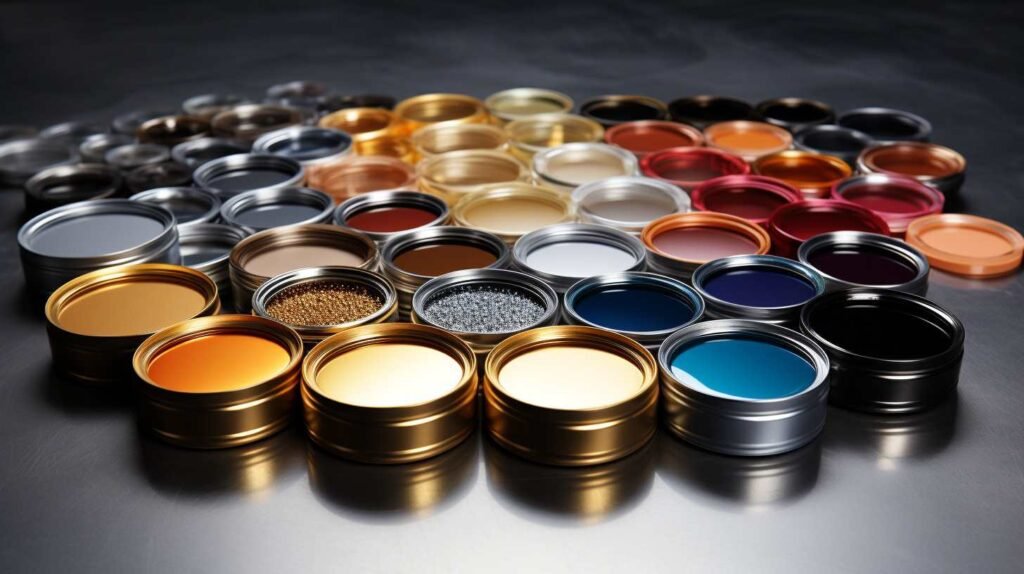
Advantages of Aluminum Fabrication
Aluminum offers a unique combination of properties that make it an ideal material for various products. These benefits help reduce costs, improve performance, and simplify production.
Lightweight
Aluminum is much lighter than steel. This makes parts more straightforward to handle, ship, and assemble. It reduces load in vehicles, tools, and structures. Less weight means lower fuel use and improved efficiency.
Corrosion Resistance
Aluminum naturally forms a thin oxide layer. This protects it from rust and chemical damage. It performs well in outdoor, marine, and high-humidity environments without the need for extra coating.
High Strength-to-Weight Ratio
Aluminum offers good strength while staying light. This balance is suitable for applications in aerospace, automotive, and machine parts. Some alloys, such as 7075, can match the strength of steel at a fraction of the weight.
Malleability and Formability
Aluminum is easily bent, cut, and shaped. It doesn’t crack or break under routine forming. This reduces tool wear and increases production efficiency. It also supports complex part designs and tight tolerances.
Applications of Fabricated Aluminium Parts
Oh, what versatility! Aluminum’s versatility is one of the main reasons we at Shengen have dedicated ourselves to aluminum fabrication.
Aerospace and Aviation
Because of its incredible weight-to-strength ratio and lightness, aluminum is a favorite in the aerospace industry. Aircraft components, satellites, and components for the International Space Station use aluminum parts because of their weight efficiency and resilience.
Automotive and Transportation
Aluminum’s weight-saving properties are beneficial to cars, trucks, and buses. It not only improves vehicle performance, but it also boosts fuel economy. The automotive industry uses aluminum in many components, from engine parts to decorative trims.
Construction
Aluminum glistens on the modern skyline. Builders use aluminum for tile trim, window frames, and roofing. It also adds aesthetic appeal to the building. Aluminum’s resistance to corrosion makes it an excellent choice for the exterior, as it can stand up against all elements.
Electronics
Digital device manufacturers often use aluminum in devices without which we cannot live. This includes smartphones, laptops, and other electronic gadgets. Aluminum is a material that has excellent thermal conductivity. This ensures our electronic devices stay cool. It also lends an elegant, modern look to high-end products.
Medical Equipment
In the medical industry, sterility and durability are of paramount importance. Aluminum’s non-toxic and natural corrosion resistance makes it an excellent choice for medical devices, surgical instruments, and healthcare kiosks.
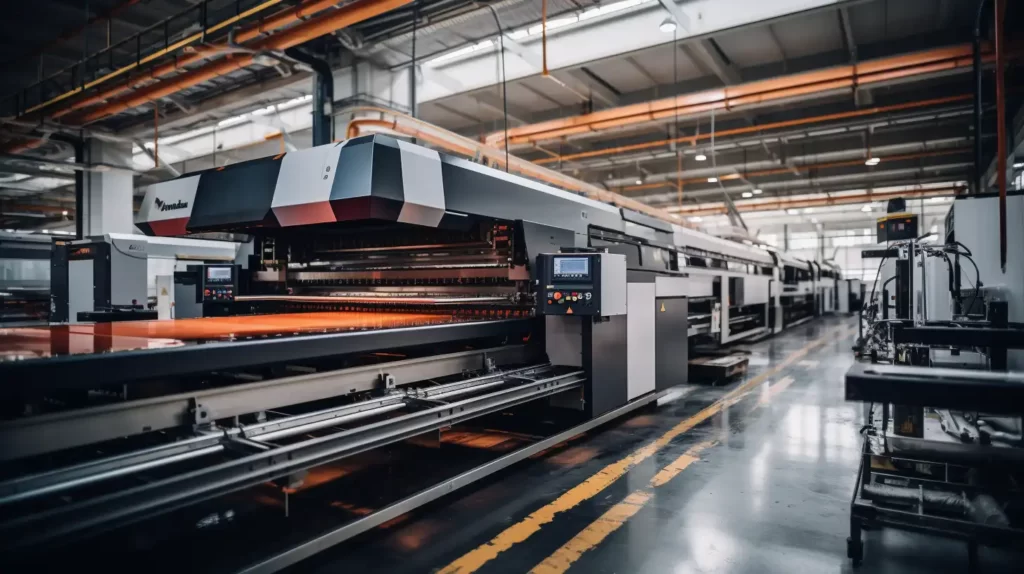
Key Decision Factors for Aluminum Fabrication Processes
Selecting the most suitable fabrication process depends on several key factors. Considering these points helps ensure parts perform well, meet budgets, and are easy to produce.
Material Properties
Different aluminum alloys have unique strengths, bending properties, and corrosion resistance. Matching the alloy to the fabrication method ensures better quality and fewer production problems. Some alloys form easily, while others offer higher strength but are harder to shape.
Design Complexity
The complexity of the part determines the best processes. Simple shapes work well with methods like shearing and press brake bending. Complex designs may require laser cutting, CNC machining, or casting to achieve the necessary level of detail.
Production Volume
The number of parts needed affects the choice of process. Stamping, roll forming, and extrusion are ideal for large production runs because of their speed and efficiency. CNC machining or laser cutting might be more suitable for smaller quantities or custom parts.
Structural Demands
The strength needed for each part impacts process selection. Parts subjected to heavy loads may require specific alloys, welding methods, or structural designs. Processes like extrusion or CNC machining are chosen for high-strength requirements.
Cost Considerations
Fabrication costs vary widely depending on materials, complexity, and the selected methods—stamping and extrusion usually lower costs at high volumes. Laser cutting and CNC machining are precise, but they can increase the price per part. Balancing quality, quantity, and budget is critical when selecting methods.
Shengen’s Capability in Custom Aluminum Fabrication
We offer full-service aluminum fabrication, from prototypes to mass production. Our team works with various aluminum grades to meet different design, strength, and finish needs.
Our facility supports various processes, including laser cutting, CNC machining, stamping, bending, welding, and surface finishing. We handle parts ranging from simple brackets to complex enclosures or frames.
With over 10 years of experience, our engineers help optimize designs for both cost and function. Whether you need a single custom part or a full production run, we deliver high-quality, accurate aluminum components on time and to specification.
Conclusion
Aluminum fabrication is the process of cutting, shaping, joining, and finishing aluminum into custom parts. It encompasses methods such as laser cutting, press brake bending, welding, machining, and more. Each step depends on the material type, design needs, and production volume.
Are you seeking a trustworthy partner for your custom aluminum parts? Contact us today to discuss your project and get a fast, accurate quote.
Hey, I'm Kevin Lee

For the past 10 years, I’ve been immersed in various forms of sheet metal fabrication, sharing cool insights here from my experiences across diverse workshops.
Get in touch

Kevin Lee
I have over ten years of professional experience in sheet metal fabrication, specializing in laser cutting, bending, welding, and surface treatment techniques. As the Technical Director at Shengen, I am committed to solving complex manufacturing challenges and driving innovation and quality in each project.

